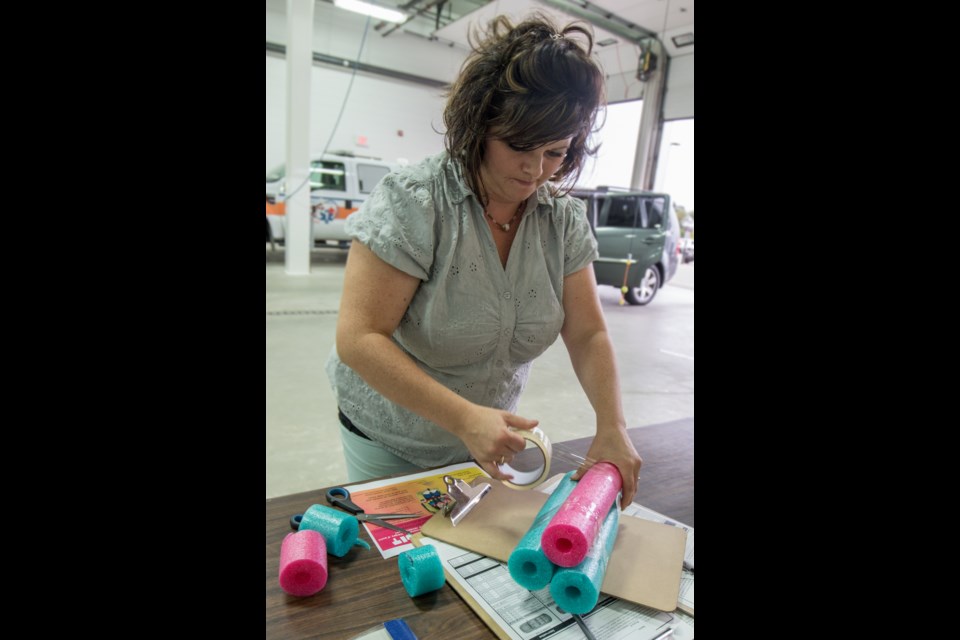Pool Noodles are being installed into cars to save lives.
On Friday, the Porcupine Health Unit hosted their biannual ‘Car Seat Safety Blitz', a drop-in clinic where, at no cost, parents and caregivers can have their car seats looked at by ‘certified car seat technicians’.
About 25 percent of the car seats that come in to the clinics need to be adjusted using pool noodles.
“With rear facing car seats most of them have to be around a 45 degree angle so that the baby is not too upright or laying back to far. If you don’t have the right angle, and if it’s a new baby, then there could be a problem with their airway,” said Shari Faubert, public health nurse and seat technician for PHU. “If they’re too reclined you have that risk of them catapulting out the front.”
To make sure the car seats are at a proper 45-degree angle, pool noodles are cut up into pieces the same width as a car seat.
Usually three pieces are taped together into a pyramid and then wedged under the front of the seat to create the proper angle.
“Sometimes we only use one (pool noodle) and at home parents who don’t have pool noodles can use a rolled up towel (however) it doesn’t have as much compression. All car seats are different and require a unique setting,” said Faubert.
The PHU stocks up on pool noodles from Canadian Tire and Wal-Mart throughout the year and store them in big boxes at their offices.
These pool noodles have probably saved lives.
“The pool noodles have definitely assisted us to get the proper angle, so, I guess, when you think about it that way they’ve (saved lives) because it helps us with a safer install,” said Faubert.
The pool noodle technique is not just some wacky idea by the PHU, the Ministry of Transportation also lists the technique in their car seat safety information literature.
The PHU provided some facts and statistics related to car seats.
Did you know?
- A 2008 PHU study found that 85 per cent of car seats inspected were installed incorrectly
- Car seats, when used correctly, reduce the total risk of death for children ages 2 to 6 by 28 per cent
- Car seats and booster seats have expiry dates, don’t forget to check yours and dispose of any expired equipment
- Most cars have front seat airbags that can hurt small children; children under 12 should always be in the back seat
- Most car seats have detailed instruction manuals, these are important to refer to when doing an install
Friday’s Car Seat Safety Blitz was held in conjunction with the North Eastern Ontario Family and Children's Services at the Cochrane District Social Services Administration Board Ambulance Bay.
For further questions, contact the PHU.



